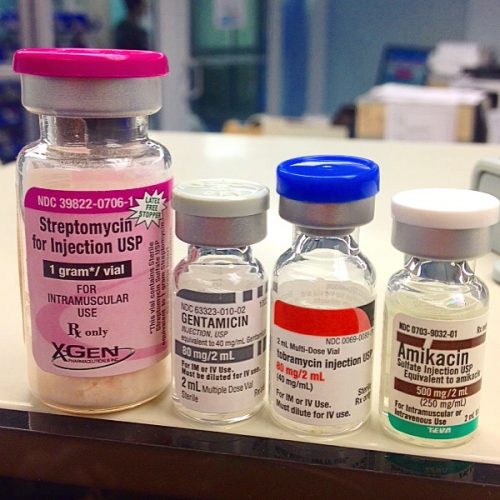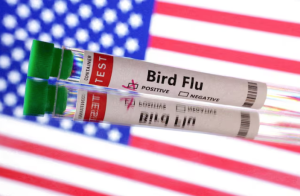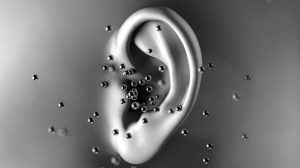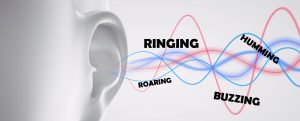Tinnitus manifests as a persistent auditory disturbance, often described as an incessant noise in the ears. Various pharmaceutical agents, such as analgesics, antimalarials, and chemotherapy drugs, are potential culprits behind this condition.
Though often likened to a ringing sensation, tinnitus may also be perceived as a continuous buzzing or roaring sound. Its origins remain ambiguous, but potential catalysts include prolonged exposure to deafening environments, auditory degeneration, infections in the ear, or cranial trauma. Moreover, some drugs known as ototoxic medications are notorious for disrupting inner ear functions and triggering tinnitus.
Aminoglycosides and Tinnitus

Aminoglycosides, a class of potent antibiotics, are instrumental in combating diverse bacterial infections. They achieve this by inhibiting bacterial protein synthesis, thereby annihilating harmful cells. Nonetheless, certain aminoglycosides are infamous for their ototoxic properties, which might culminate in tinnitus.
A meticulous review conducted in 2023 identified several aminoglycosides with heightened tinnitus risks, such as amikacin, neomycin, kanamycin, and tobramycin. However, the absence of a definitive diagnostic test for tinnitus complicates efforts to measure its prevalence as a side effect of these antibiotics.
Chemotherapy Agents and Auditory Impairment

Chemotherapy drugs, designed to eradicate malignant cells, often come with a suite of adverse effects, tinnitus being a notable example. The likelihood of tinnitus escalates, particularly with platinum-based chemotherapy agents like cisplatin and carboplatin. These medications are associated with prolonged auditory disturbances, including both tinnitus and hearing loss. Therefore, routine auditory evaluations are imperative for patients undergoing platinum-based therapies.
Analgesics: A Double-Edged Sword
Widely utilized for pain relief, both over-the-counter and prescription analgesics may inadvertently provoke tinnitus. Aspirin, acetaminophen, and nonsteroidal anti-inflammatory drugs (NSAIDs) are among the most implicated.
A 2022 longitudinal study encompassing 69,455 women revealed that frequent use of moderate doses of aspirin, NSAIDs, or acetaminophen—specifically 6 to 7 days per week—significantly elevated the risk of tinnitus. Noteworthy offenders include high-dose aspirin, ibuprofen, naproxen, and diclofenac (particularly in ear-drop form). Encouragingly, tinnitus induced by NSAIDs often subsides once the medication is discontinued.
Antimalarial Medications and Ototoxicity

Medications used to combat malaria, such as quinine, hydroxychloroquine, and chloroquine, have also been linked to tinnitus. A 2021 study observed that intravenous quinine could cause transient auditory disturbances lasting 1 to 7 days. Similarly, hearing issues associated with hydroxychloroquine and chloroquine tend to resolve upon cessation of the medication.
Strategies for Prevention and Management
Over 200 substances, including medications and chemicals, are recognized as ototoxic, with tinnitus frequently being an initial warning sign. Preventing tinnitus entirely during ototoxic drug regimens remains challenging. However, mitigating measures, such as dose adjustments or switching to alternative treatments, can alleviate its impact.
Close monitoring of auditory health is essential. Patients should undergo baseline hearing assessments before starting ototoxic medications and report any auditory anomalies promptly. Regular hearing evaluations enable healthcare providers to make informed decisions about medication adjustments.
While discontinuation of tinnitus-inducing drugs may not always be feasible, various non-pharmaceutical interventions can help manage the condition. These include:
– Cognitive Behavioral Therapy (CBT): Helps individuals cope with the psychological burden of tinnitus.
– Tinnitus Retraining Therapy: Utilizes sound therapy to desensitize the brain to tinnitus sounds.
– Hearing Aids: These are beneficial for those experiencing tinnitus alongside hearing loss.
Ultimately, the advantages of these medications often outweigh the drawbacks, emphasizing the importance of comprehensive healthcare discussions and individualized treatment approaches.












Be First to Comment